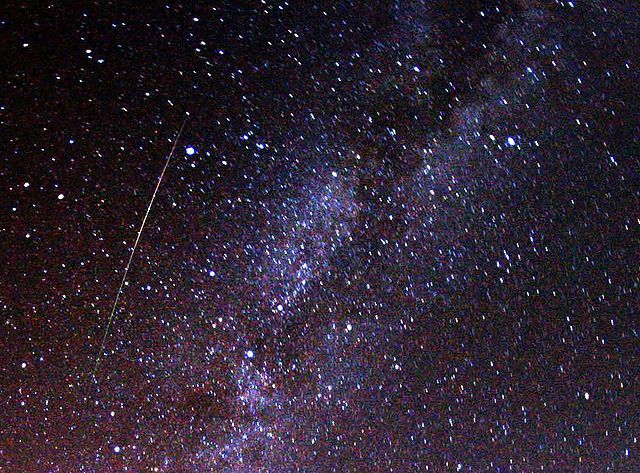If this summer’s seemingly unending cloud cover breaks up this weekend, the annual summer appearance of the Perseid meteor shower could be a good one.
The Perseid meteors are debris from the Swift-Tuttle comet. They show up in August at roughly the same time each year, as the earth rotates once again into the comet’s debris field. They should peak this year between August 11 and 13.
“The Perseid will be more visible this year,” Tina Ibsen, an astrophysicist and director of the science and communications department at the Tycho Brahe Planetarium, told Jyllands Posten. “The moon is in a crescent phase, which will allow more meteors to be seen.”
The Perseid Meteor Storm is named after the Perseus constellation, because it appears that the debris from the comet originates from that constellation.
A great show
The Perseid shower is noted for its large number of extra bright shooting stars
“They can actually be so powerful that they can trace a trail of light across the sky – and sometimes you can even hear them,” said Ibsen. “There can be so much light in the sky that you can see shadows on the ground.”
The largest number of meteors will be visible on Friday and Saturday night, weather permitting. Find the Perseus constellation, which is located just below the Cassiopeia constellation (his mother-in-law in Greek mythology), and watch the sky in a northeasterly direction.
READ MORE: Geminid meteor shower would be impressive … if we could see it
The comet was discovered in 1862 by astronomers Lewis Swift and Horace Tuttle.















